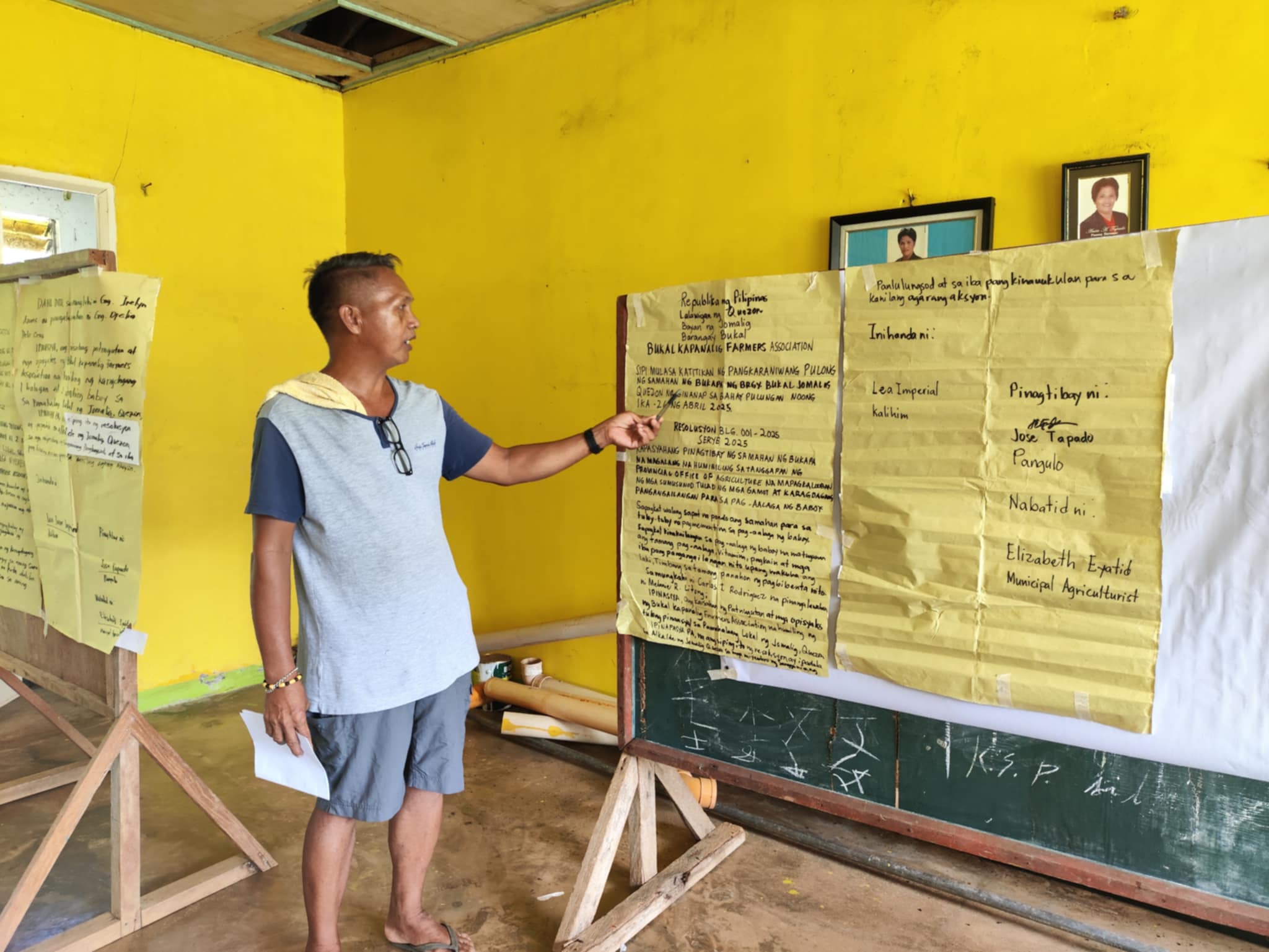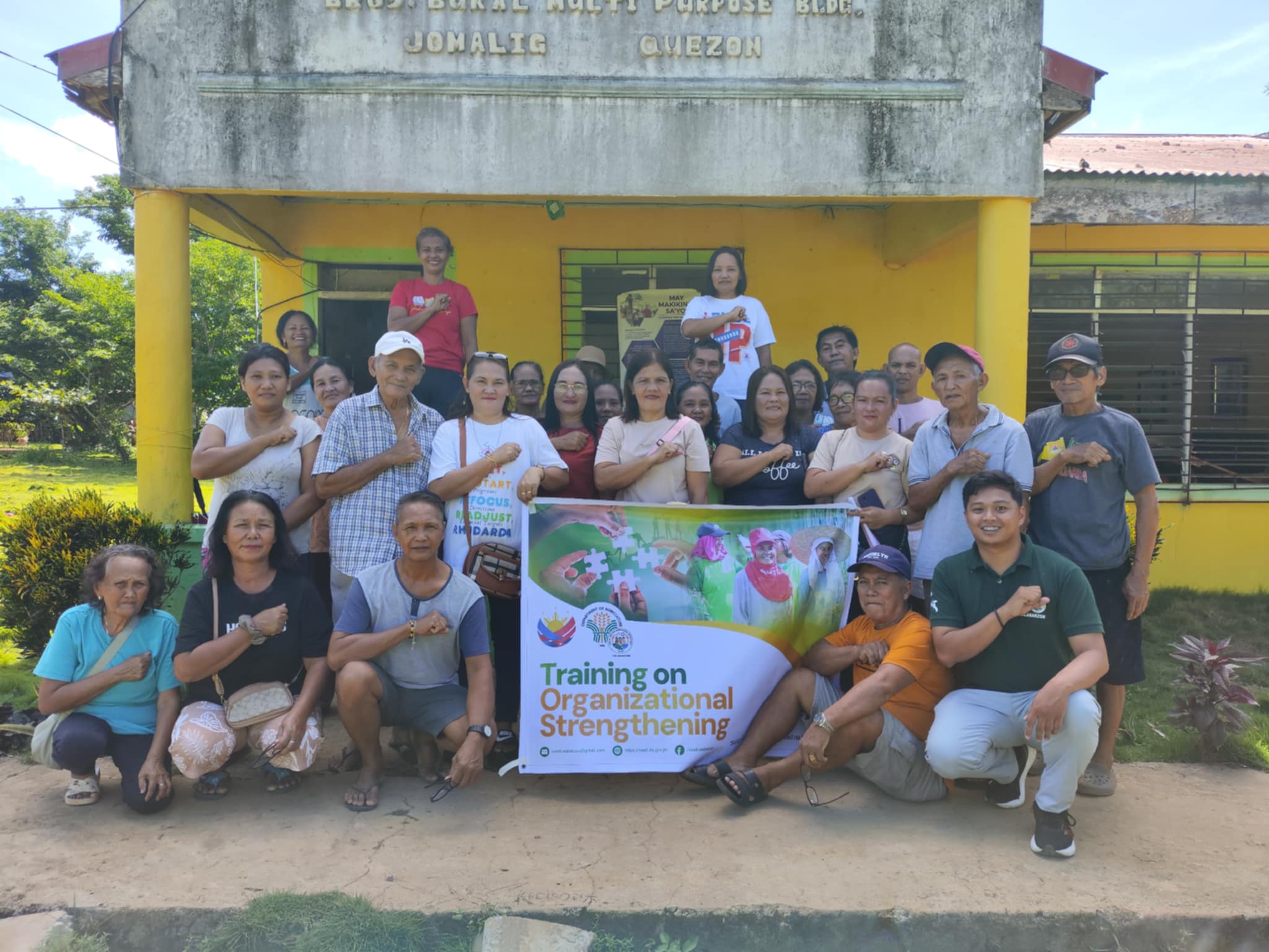The Department of Agriculture’s Special Area for Agricultural Development (DA-SAAD) Program CALABARZON launched a series of training sessions in Jomalig, Quezon to help strengthen local farmer associations.
Held during the first two weeks of June, the initiative focused on improving the organizational capacity of local groups to ensure more sustainable and self-reliant operations.
A total of 125 farmers from three associations participated in the capacity-building sessions: Samahan ng Magbabaka ng Casuguran (SAMACA), Talisoy United Livestock and Poultry Raisers Association (TULPRA), and Bukal Kapanalig Farmers Association (BUKAFA). These activities equipped grassroots organizations with essential governance and management skills to ensure operational sustainability.
Prior to SAAD’s intervention, many of these groups operated informally and lacked legal registration. The program’s early groundwork in community organizing, values formation, and leadership training helped formalize their structures and set the stage for long-term organizational development.
The recent training series deepened this foundation by focusing on three key areas: effective meeting management, resolution writing, and clarification of organizational roles. Participants learned how to structure meetings with clear agendas, facilitate constructive dialogue, and develop solutions to common challenges. These skills are critical for decision-making and participatory governance.
Resolution writing was also emphasized as a tool for advocacy and resource mobilization. Farmers were taught how to craft formal requests to government agencies and external partners, broadening their access to support beyond the SAAD Program.
Additionally, a comprehensive review of organizational roles clarified the responsibilities of officers and members. By defining internal systems and accountability mechanisms, the associations are now better positioned to implement projects, mobilize their members, and scale up their livelihood activities.
The three-day training covered intensive workshops, with eight sessions facilitated by development experts and DA-SAAD staff. Participating associations received learning materials, and nine resolutions were drafted and reviewed during breakout activities. Each group also designated at least three officers to spearhead internal reforms following the training.
Mr. Jose Tapado, President of Bukal Kapanalig Farmers Association, expressed the value of the training:
“Ang mga ganitong pagkakataon ay hindi natin dapat ipinapasawalang bahala dahil kung ito ay ating seseryosohin, mas lalong lalakas ang ating grupo.” [We should not take these opportunities for granted because if we take them seriously, our group will become even stronger.]
His perspective was echoed by Ms. Ledenilla Supremo, President of SAMACA, who highlighted how resolution drafting could directly support their livelihood expansion:
“Kagaya ng paggawa ng mga resolusyon, upang mas mapalawak pa ang kabuhayan ng samahan.”[Like the crafting of resolutions, to further expand the livelihood of the association.]
Through strategic capacity-building efforts like these, the SAAD Program continues to strengthen farmers’ associations at the grassroots level. These efforts lay the groundwork for resilient, self-sustaining farming communities in Jomalig and beyond. ###



